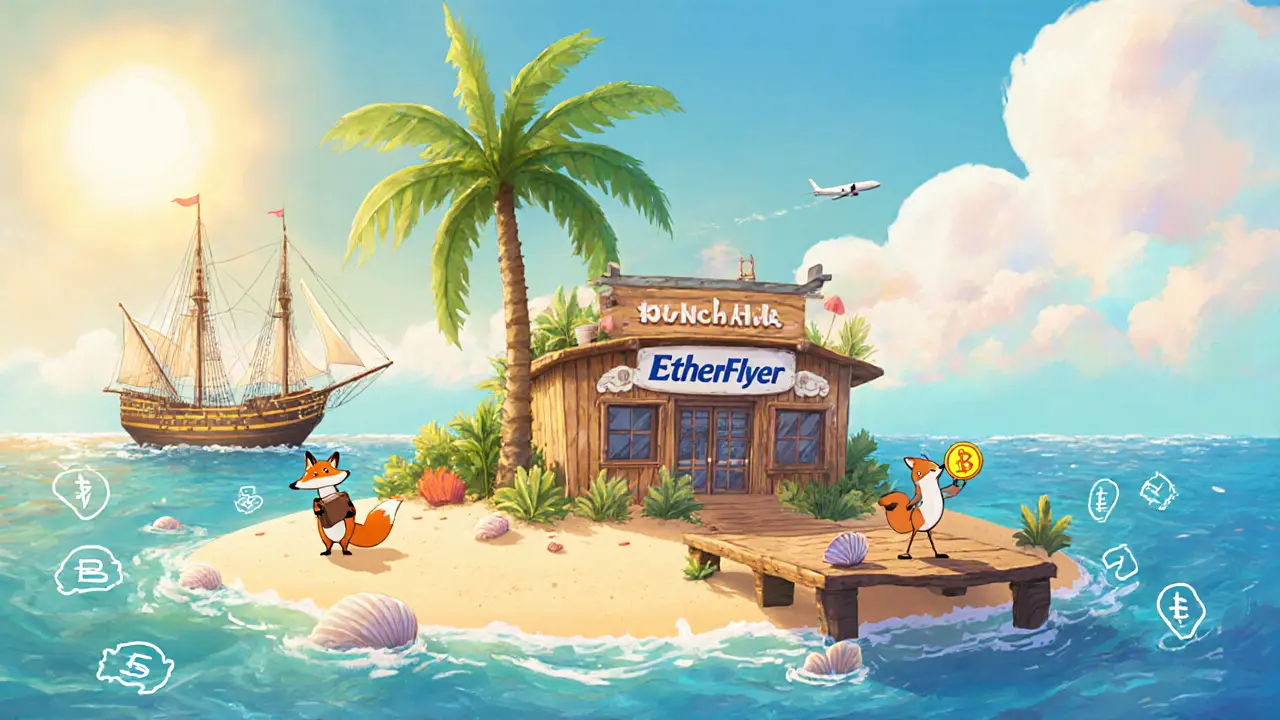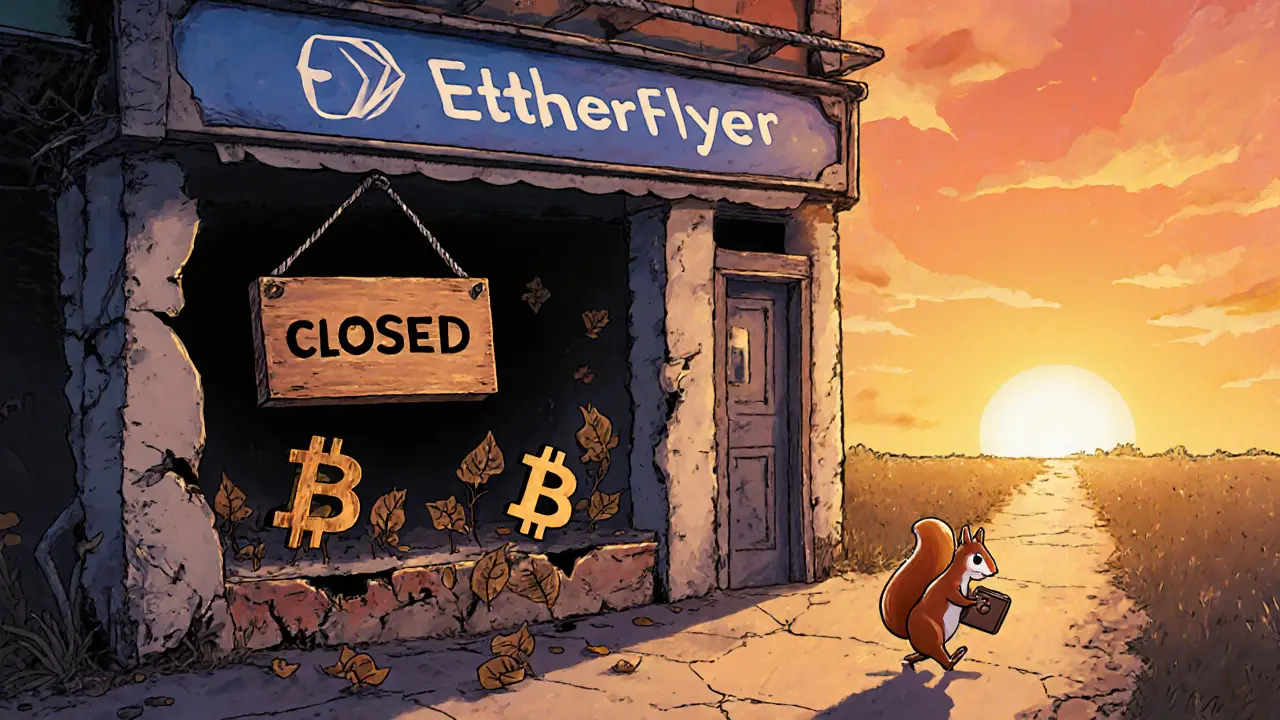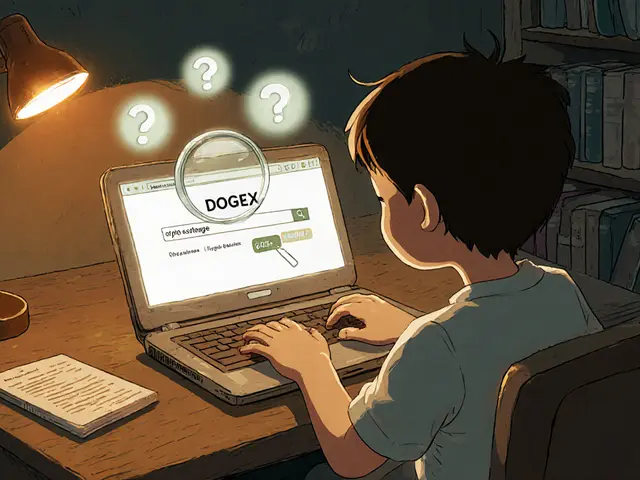
EtherFlyer Exchange Status Checker
Exchange Overview
This tool helps determine if EtherFlyer is still operational and compares its performance against industry standards.
EtherFlyer review - you’ve probably seen the name while scrolling through DEX listings and wondered whether the platform is worth a try. The short answer: the exchange has stopped operating, and the lack of data long before that signaled serious problems. Below we break down what EtherFlyer was, why it never gained traction, and which red flags you should watch for when vetting any decentralized exchange.
What Is EtherFlyer?
When it launched in October 2017, EtherFlyer was a decentralized cryptocurrency exchange registered in Samoa. It marketed itself as a peer‑to‑peer platform where users kept full control of their funds, an appealing promise during the early crypto boom.
Key Characteristics and Claimed Benefits
- Decentralized architecture - trades happen directly between wallets, no central order book.
- Minimal KYC - users could create an account without uploading personal documents.
- Global server distribution - the Samoan registration gave the service a “off‑shore” vibe and theoretically reduced downtime risk.
In theory, these points line up with the typical advantages of a Decentralized Exchange (DEX) that lets traders retain private‑key ownership. But the practical side fell short.
Transparency Gaps That Raised Early Red Flags
From day one, data aggregators struggled to track EtherFlyer. As of September2021, CoinMarketCap listed the exchange as an untracked entry with no volume or pair information. CoinGecko showed the same void - no listed trading pairs, no daily volume figures. When a platform can’t provide basic market data, it becomes a "big red flag" for any prudent investor.

User Adoption and Community Feedback
CryptoGeek aggregated only two user reviews, giving EtherFlyer a 3‑out‑of‑5 star rating. By contrast, a competitor like Vertex.Market earned 4.7 stars from six reviewers. On Forex Peace Army no reviews were recorded as of November2024. The sparse feedback suggests the exchange never built a meaningful community.
One of the two reviews on AffGadgets called the platform "efficient" and praised its speed, but this lone positive comment is outweighed by the overall lack of engagement. When a service has almost no users, even a glowing review can’t compensate for the missing liquidity and network effect that power healthy exchanges.
Liquidity and Operational Performance
Liquidity is the lifeblood of any exchange. Without enough buyers and sellers, price slippage skyrockets and orders may never fill. EtherFlyer never published order‑book depth, and the absence of volume data on major trackers meant traders couldn’t gauge how much capital was actually moving on the platform.
To illustrate the gap, see the comparison below.
| Metric | EtherFlyer | Industry Average (DEX) |
|---|---|---|
| User Rating (out of 5) | 3 | 4.2 |
| Number of Reviews | 2 | ≈1,200 |
| Tracked Daily Volume | None | Varies, but typically >$10M |
| Operational Status (2025) | Closed | Active |
| Liquidity Depth (average order‑book) | Not disclosed | High (multiple markets) |
Regulatory Landscape and Jurisdiction Concerns
Being registered in Samoa a jurisdiction known for permissive crypto rules gave EtherFlyer flexibility but also limited regulatory oversight. The platform never listed the UnitedStates as a prohibited region, leading some to assume US users could join. However, experts repeatedly warned that American traders should "form their own opinion" about residency issues because U.S. regulators treat many DEX activities as securities transactions.
Without a clear compliance framework, users faced higher legal uncertainty and fewer consumer protections. This factor, combined with the opaque operational data, made EtherFlyer a risky choice for anyone concerned about regulatory compliance.

Security and User Responsibility
All DEXs share a core responsibility: you control your private keys. If you lose a password or seed phrase, the funds are gone forever. EtherFlyer offered no custodial backup, which aligns with the standard DEX model but amplifies the need for rigorous personal security practices.
Why EtherFlyer Shut Down
Multiple sources, including CoinCodex that lists the exchange as no longer operational, confirm the platform is offline. The lack of liquidity, minimal user base, and absent data reporting created a perfect storm. Without active traders, the exchange could not generate revenue to cover server costs, development, or marketing. No roadmap or revival announcement has appeared since the 2021 data gaps, confirming the shutdown was permanent.
Takeaways for Anyone Exploring Decentralized Exchanges
- Check data aggregators (CoinMarketCap, CoinGecko) for volume and pair information. If an exchange is "untracked," treat it with caution.
- Look for community feedback. A healthy DEX typically has dozens or hundreds of reviews across multiple platforms.
- Assess jurisdiction. Off‑shore registration can mean fewer consumer protections.
- Never store large balances on a single DEX. Use hardware wallets for long‑term storage.
- Prefer exchanges that publish transparent liquidity metrics; this reduces slippage risk.
Frequently Asked Questions
Is EtherFlyer still usable in 2025?
No. CoinCodex lists the exchange as no longer operational, and the platform’s website is unreachable.
What makes a DEX different from a centralized exchange?
A DEX lets users trade directly from their wallets, so the platform never holds private keys. Centralized exchanges hold user funds in custodial accounts and typically require KYC.
How can I verify the liquidity of a DEX before trading?
Look at the order‑book depth on block‑explorers or use analytics sites like DEXTools. High bid‑ask spread or missing volume data are warning signs.
Is it safe to trade on an exchange registered in Samoa?
Samoa’s permissive crypto stance can reduce regulatory burden, but it also means fewer consumer protections. Always perform independent due diligence.
What should I do if I lose my DEX wallet password?
Unfortunately, without a backup seed phrase there is no way to recover the funds. This is why experts advise keeping small amounts on DEXs and storing the bulk in a hardware wallet.
20 Comments
Write a comment
More Articles

Zamio (ZAM) Token Airdrop Details: How to Join MEXC & CoinMarketCap Campaigns
Detailed guide on Zamio's ZAM token airdrop, covering MEXC and CoinMarketCap campaigns, participation steps, rewards, risks, and future outlook.


Matt Nguyen
June 4, 2025 AT 20:41While the veneer of decentralization is alluring, one must scrutinize the opaque data pipelines that EtherFlyer left behind. The absence of tracking on major aggregators is more than a trivial oversight; it signals a systemic lack of transparency. Moreover, the minimal KYC approach, though appealing to privacy purists, opens doors to illicit activities that regulators inevitably chase. In my view, a platform that cannot provide basic volume metrics is defiantly courting suspicion, and anyone still flirting with such an exchange is definately risking capital.